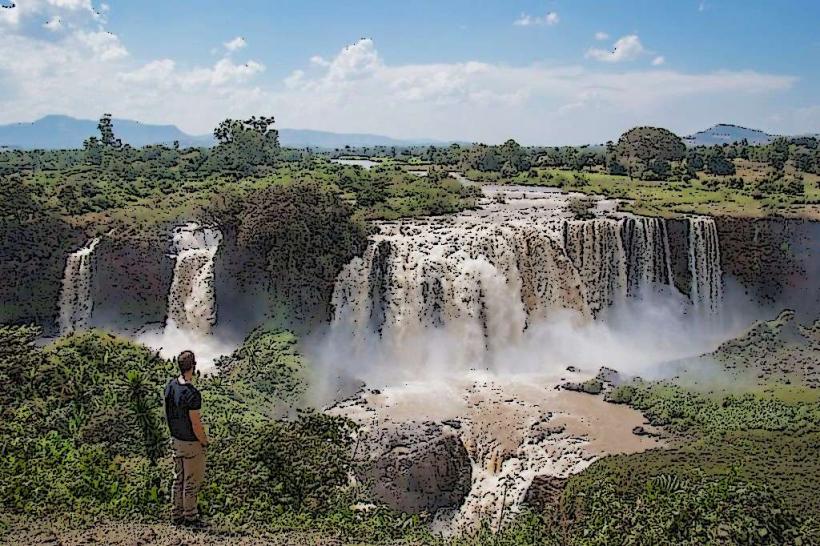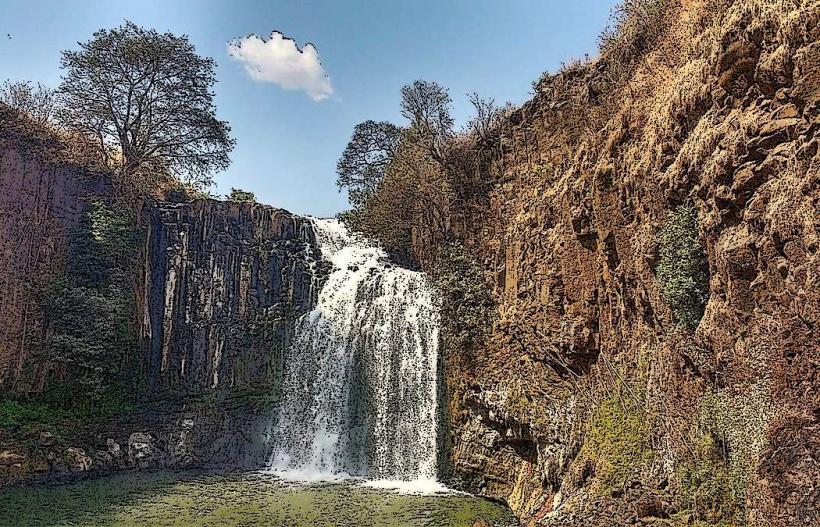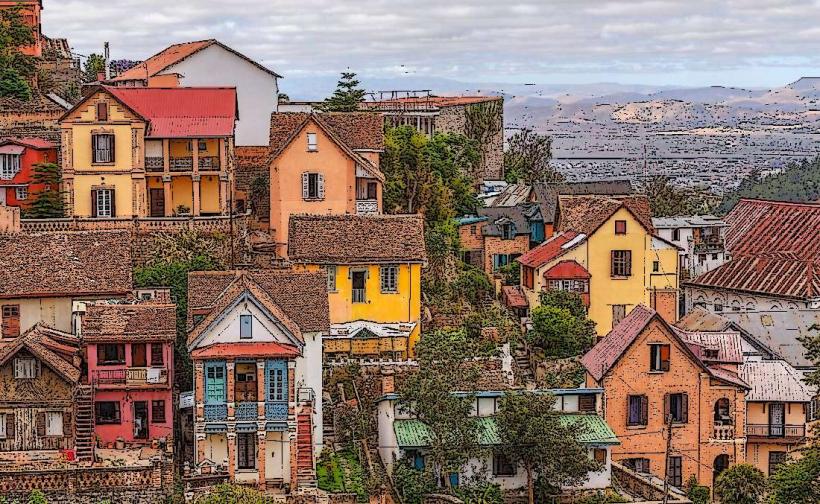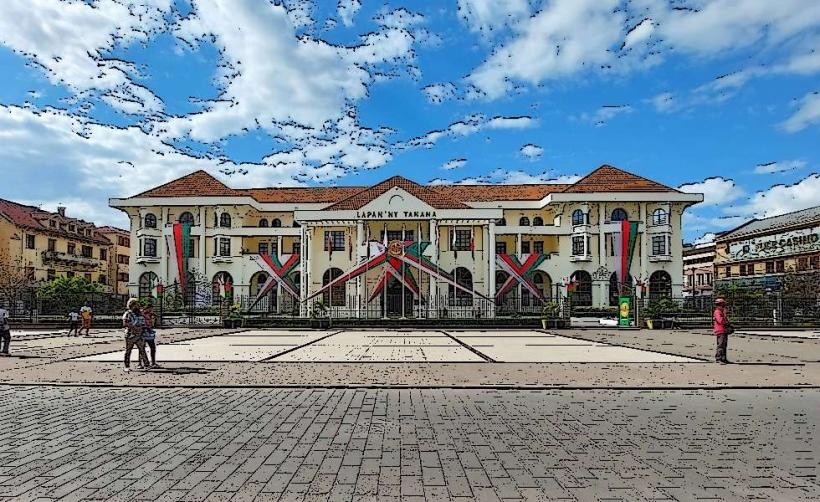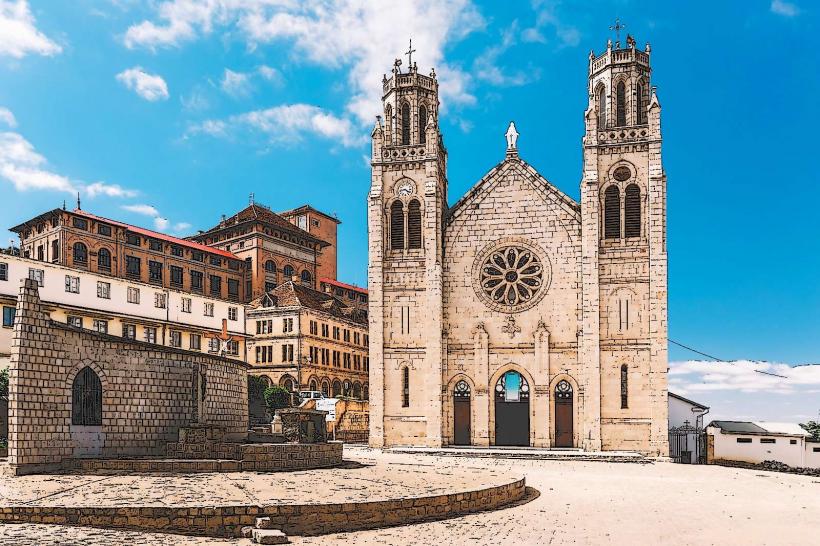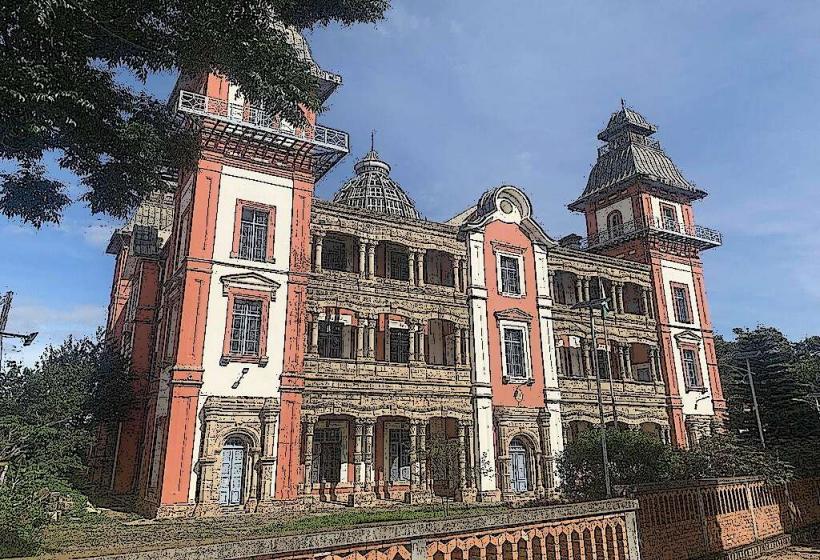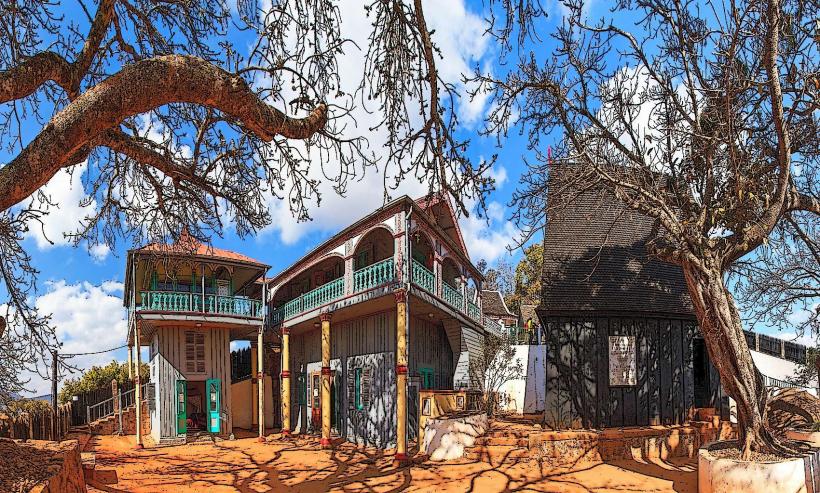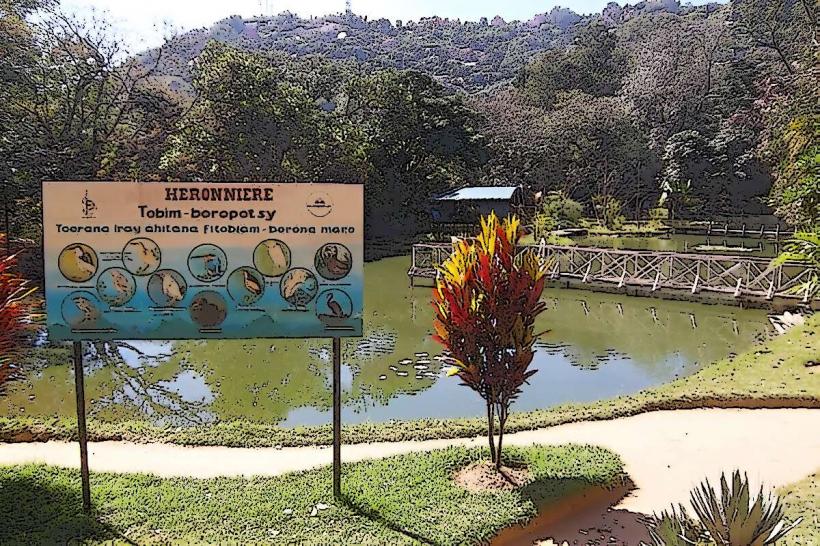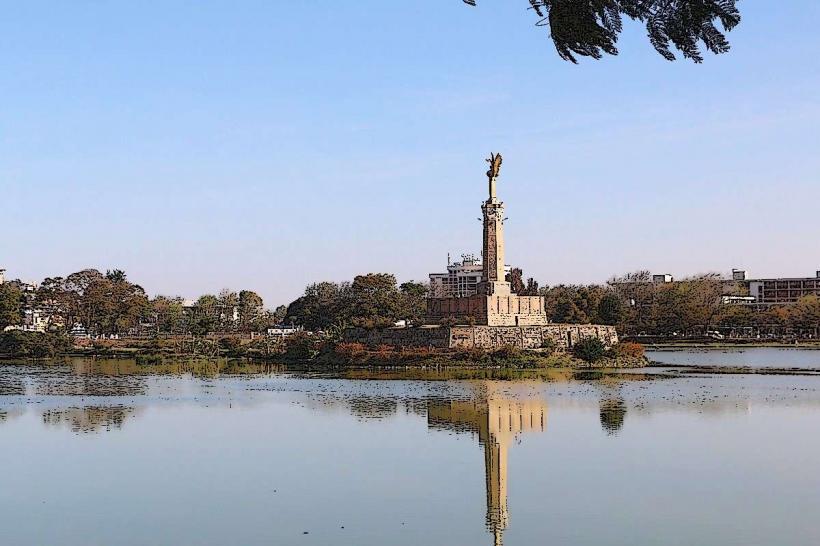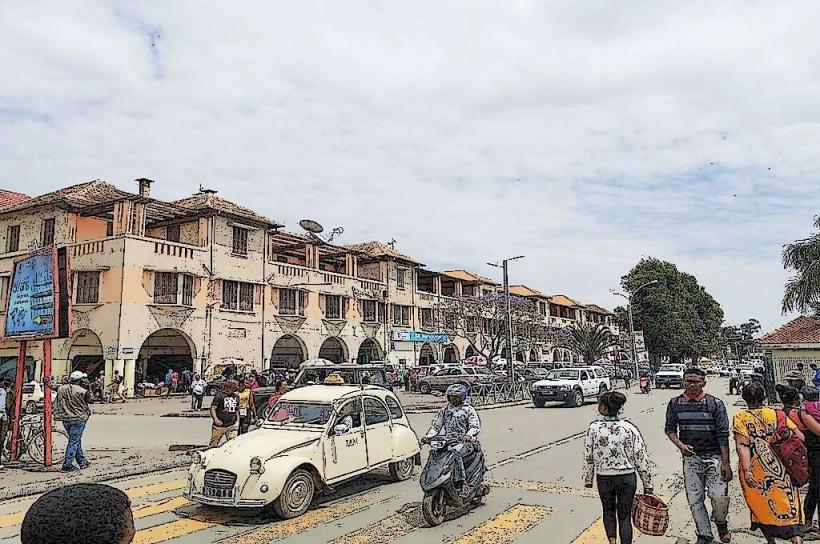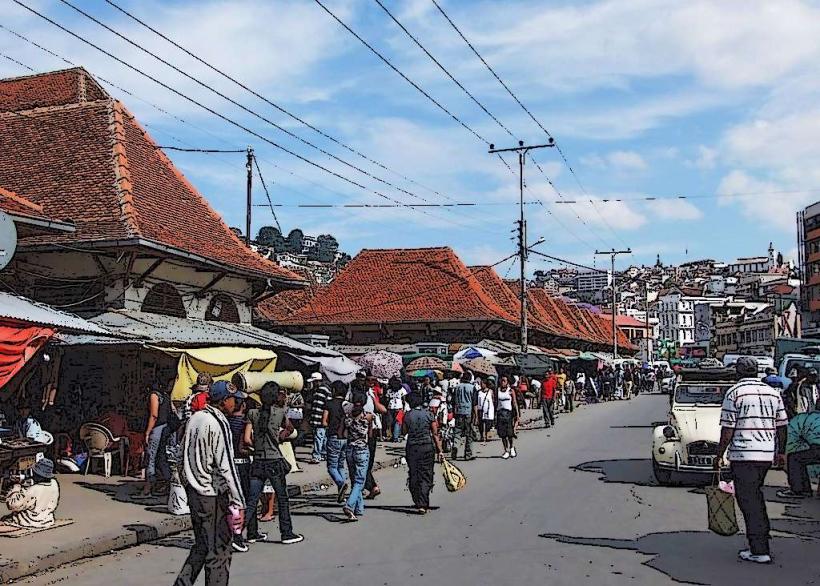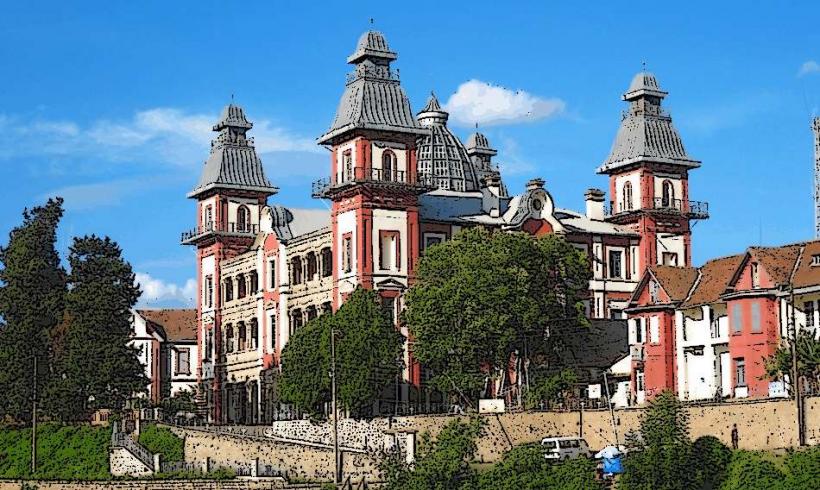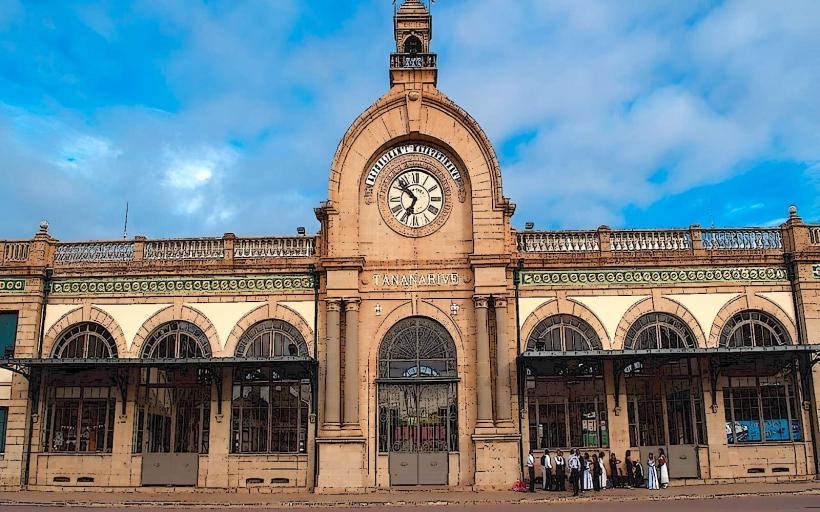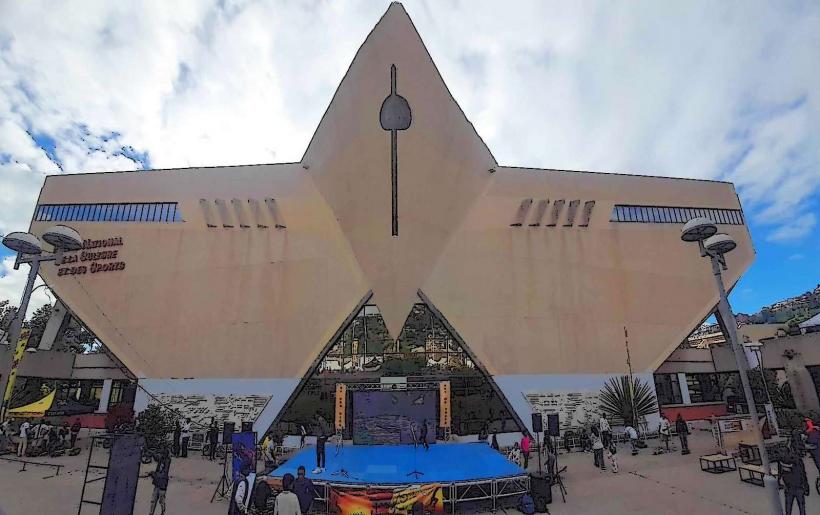Information
Landmark: Royal Palace (Rova of Antananarivo)City: Antananarivo
Country: Madagascar
Continent: Africa
Royal Palace (Rova of Antananarivo), Antananarivo, Madagascar, Africa
The Rova of Antananarivo is a royal palace complex located on Analamanga, the highest hill in Antananarivo, Madagascar. It served as the seat of the Merina Kingdom from the 17th century until the late 19th century.
Visual Characteristics
The complex features several structures, predominantly built with wood and stone. The largest and most prominent building is Manjakamiadana, a wooden palace encased in stone, reaching approximately 38 meters in height. Its facade incorporates European architectural elements, including a large stone archway. Other notable structures include the smaller wooden palace Tranovola and the royal tombs, which are stone structures. The overall aesthetic combines traditional Malagasy wooden architecture with 19th-century European influences.
Location & Access Logistics
The Rova is situated atop Analamanga hill, approximately 2.5 kilometers east of the city center's commercial district. Access is primarily via Rue Rova, a winding road leading directly to the complex entrance. Limited street parking is available near the entrance. Public transport options include local taxis and "taxi-be" (minibuses) that can drop visitors at the base of the hill, requiring an uphill walk, or directly at the entrance for taxis.
Historical & Ecological Origin
Construction of the first royal residence on this site began in the early 17th century under King Andrianjaka. The complex evolved significantly over centuries, with major additions and renovations occurring in the 19th century. Notable architects and engineers involved included Jean Laborde and James Cameron, who introduced European building techniques. Its original purpose was a fortified royal residence, administrative center, and burial ground for Merina monarchs. The site was largely destroyed by fire in 1995, and extensive reconstruction efforts have been ongoing since.
Key Highlights & Activities
Visitors can engage in guided tours of the complex, which provide historical context for the various palaces and royal tombs. Exploring the reconstructed interiors of Manjakamiadana and Tranovola is possible. The elevated position offers panoramic views of Antananarivo and the surrounding landscape. Observing the ongoing restoration work provides insight into traditional Malagasy craftsmanship.
Infrastructure & Amenities
Restroom facilities are available within the complex. Limited natural shade is provided by trees, and shade is available inside the palace buildings. Cell phone signal (4G/5G) is generally strong throughout the area. Food vendors and small shops are typically located at the base of the hill or in the immediate vicinity outside the main entrance, rather than within the complex itself.
Best Time to Visit
The dry season, from May to October, offers the most favorable weather conditions for a visit, with less rainfall and cooler temperatures. Mornings are generally recommended for photography, as the light is clearer and the city haze is often less pronounced. There are no specific high/low tide requirements as it is an inland site.
Facts & Legends
A significant historical event was the devastating fire on November 6, 1995, which destroyed much of the complex, including priceless artifacts and the wooden structures. Reconstruction efforts have been a national priority, aiming to restore the site to its former glory. A local legend states that the spirits of the Merina monarchs still watch over the city from the Rova's heights.
Nearby Landmarks
- Andafiavaratra Palace: 0.8km North
- Prime Minister's Palace (Mahazoarivo): 1.2km West
- Lake Anosy: 2.0km West
- Ambohitsorohitra Palace: 2.5km West

